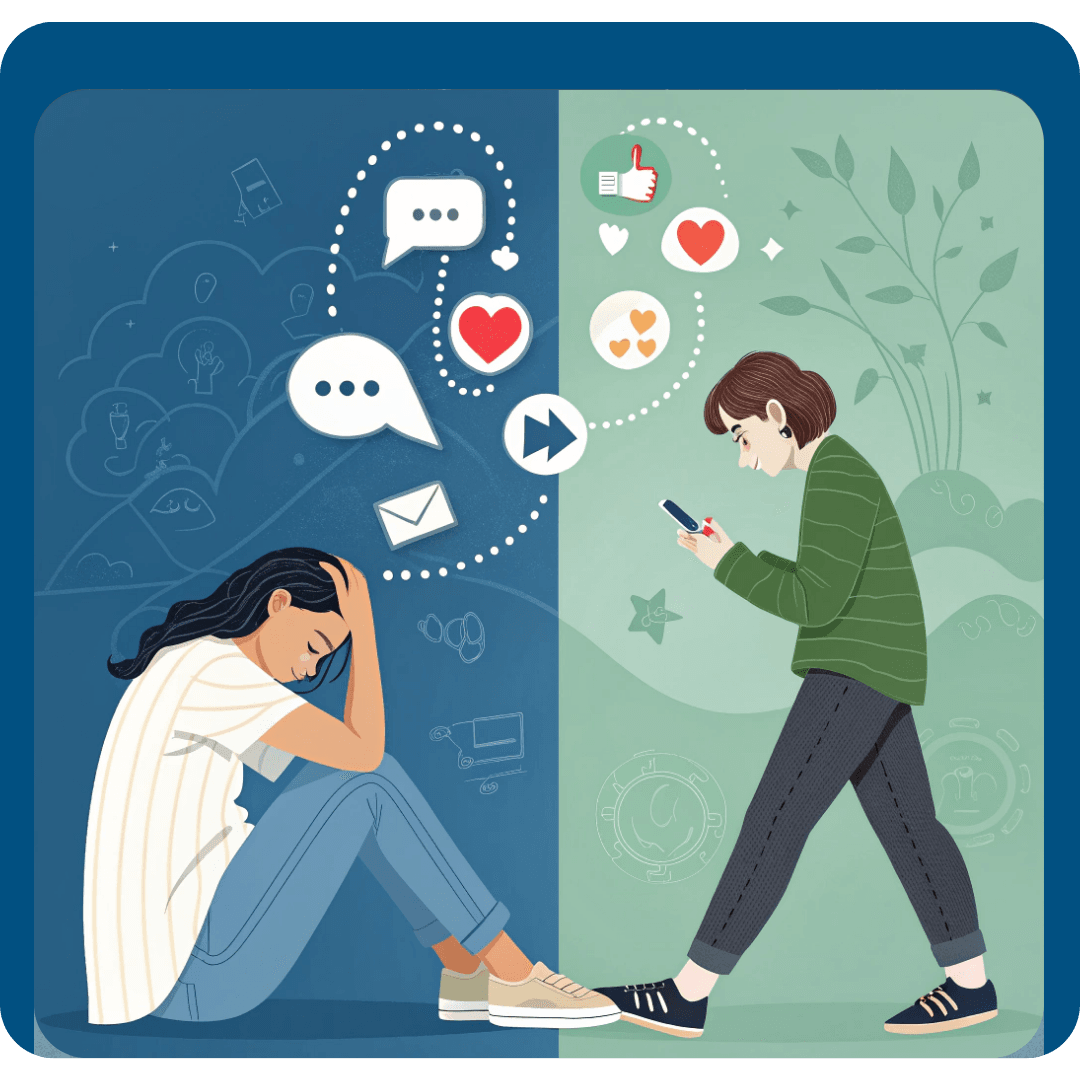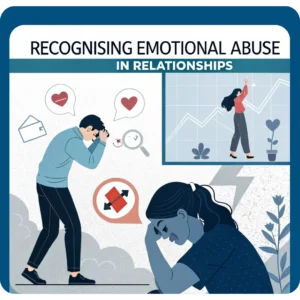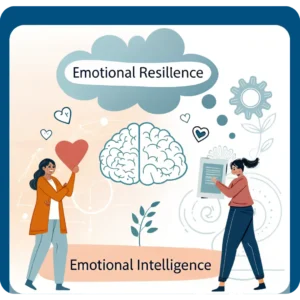The Social Media Dilemma: Between Addiction and Empowerment
In today’s digitally-driven world, social media has become an integral part of our lives. From connecting with friends and family to staying updated with the latest news and trends, its influence is undeniable. However, alongside its benefits, there’s a growing concern about the addictive nature of social media and its impact on mental and emotional well-being. An estimated 210 million people around the world are addicted to social media or the internet, according to research by the University of Michigan. With 56.8 percent of the global population using social media, social media addiction is expected to increase in the coming years. But is social media addiction really an addiction? or could it be a misunderstood capacity of individuals?
What is addiction?
Addiction often stems from a negative self-perception. Feelings of inadequacy, failure, or unworthiness can lead individuals down a path of self-destructive behaviour’s. As these thoughts get more intense, individuals seek solace by distracting themselves with substances or habits to numb themselves. Whether it’s substances or behaviours like excessive social media use, addiction perpetuates the cycle of self-judgement, making it challenging to break free. . More judgements, more compulsions, more addictions. This is one of the reasons why it is so hard to break away from addictions.
Why is social media addictive?
Unlike traditional substance addictions, social media addiction presents unique challenges. It’s a dynamic and ever-evolving platform that exerts significant influence on its users. Its pervasive nature makes it easily accessible, leading to compulsive behaviours and overuse. Moreover, social media addiction isn’t just about seeking pleasure or numbing pain; it’s about seeking validation, connection, and belonging in a virtual realm.
Social media platforms offer instant gratification in the form of likes, comments, and shares. Each interaction triggers a release of dopamine, a neurotransmitter associated with pleasure and reward. Getting likes and followers on social media makes us feel accepted and liked. Some people become addicted to seeking approval online, ignoring real-life connections.
Social media keeps us hooked with unpredictable rewards, similar to gambling. We keep coming back for more likes or comments, hoping for that next feel-good hit. It helps some people escape from real-life problems. It offers a coping mechanism for dealing with negative emotions or uncomfortable situations, providing temporary relief. It’s a distraction from stress and offers temporary relief from life’s pressures. It also shows us content based on what we like, creating bubbles that reinforce our beliefs. This keeps us engaged by showing us what we want to see.
Misjudging Capacity
However, labelling all excessive social media use as addiction might overlook the underlying capacity individuals possess. Social media offers a platform for rapid information processing, multitasking, and coping with challenging situations which otherwise would have been quite disastrous.. The ability to absorb and process vast amounts of information within seconds and navigate complex digital landscapes demonstrates a remarkable cognitive capacity. What if it was not addiction but a capacity of an individual, which when labelled as addiction becomes a limitation rather than a possibility?
Benefits of Social Media
While excessive social media use can have detrimental effects, it’s essential to recognize the value it adds to people’s lives. For many, social media serves as a source of connection, support, and entertainment. It provides a dopamine boost, alleviating feelings of loneliness or stress and offering a sense of belonging in virtual communities. In some cases, social media may even serve as a protective factor, diverting individuals from more harmful forms of coping mechanisms. Absence of tools and more information on how to deal with this capacity, may lead to compulsive behaviours that may not be contributing to your life.
How to deal with Social Media Overuse?
Self-awareness: To deal with social media overuse, you need to spend some time with yourself to know what judgements do you have of yourself that keeps you overtly engaged with social media?
Acknowledgement: Realise if you are overusing social media as a means to escape or cope with a difficult situation. Without going into the wrongness of it, acknowledge the choice you are making at the moment and choose to change it later.
Acceptance: Instead of seeking validation or approval from others on social media, try to find what makes you happy and satisfied within yourself. Look for things that make you feel good without needing others to tell you. It could be something weird as singing in the shower or wearing heels with your Pyjamas.
Evaluate: Think about what value is social media to your life? What contribution is it to your living? Understanding these thoughts and feelings can help you break free from the cycle of overuse.
- Build the Capacity: What capacity do you have with social media that you haven’t ever considered? Once you get an awareness around this, the overuse or even addictive behaviour will start turning into an opportunity for you.
Conclusion
–
Sonali Mittra
(Sonali is a Therapist and Transformation Coach)
Yes, it is real when you use it to escape, seek validation, or feel anxious without it.
Because likes/comments trigger dopamine, feedback is unpredictable, and it fills unmet emotional needs.
Yes—if used mindfully, it can offer connection, support, learning, and community.
You might feel time slipping away, guilt after scrolling, anxiety when not online, or ignoring real-life tasks.
Become aware of your habits, limit notifications, set specific times, and find fulfilling offline activities.
Effects include anxiety, low self-worth, overwhelm, stress, and self-judgment.
Not necessarily—sometimes heavy use is capacity or coping, not addiction. Labelling helps only if change is needed.
Yes. Accepting, evaluating why you use it, and seeing your capacity instead of shame makes a big difference.
Set purpose before opening, limit time, do digital detoxes, and focus on meaningful content.
If social media causes anxiety, impacts relationships, work, or you can’t stop despite wanting to—then getting support or therapy helps.





The point about unpredictable rewards and dopamine hits from likes/comments resonated so much. It’s scary how easily “just one more scroll” becomes hours.
I respect how you didn’t position social media as a villain. It’s a lifeline for many people — especially those who feel isolated offline. But like you said, without awareness, it becomes a loop you don’t realise you’re stuck in. Really well thought out and not the usual blame-the-internet kind of writing.